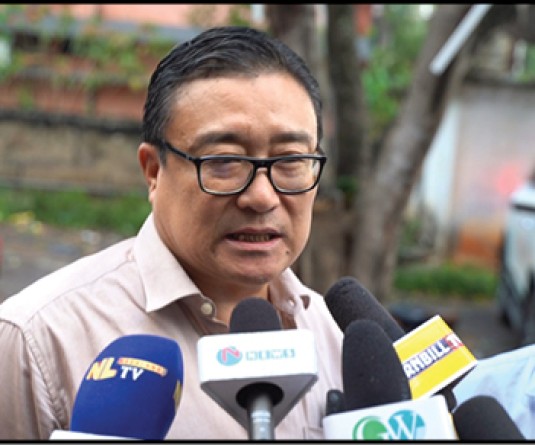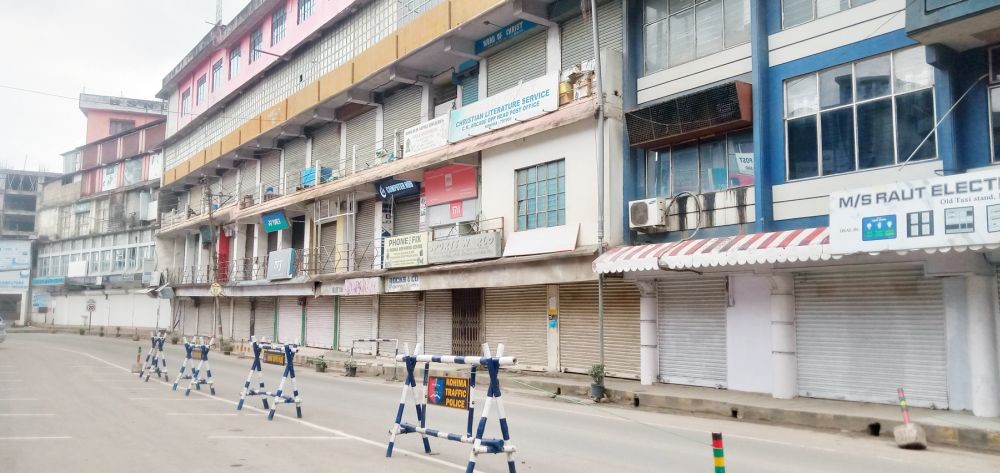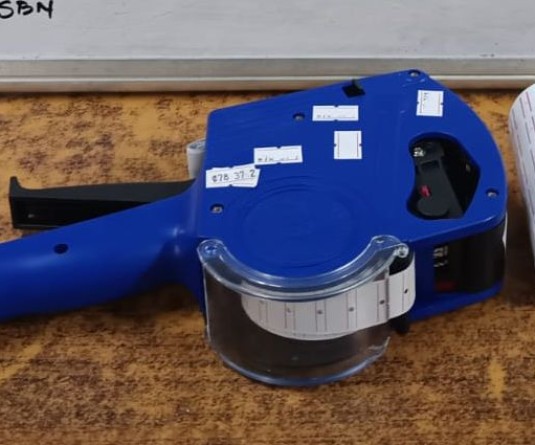
Chapter on the North East raises storm
Morung Express News
Dimapur | March 30
Nagas migrated from China and the term ‘Naga’ is derived from the Burmese word ‘Naka’ meaning people with “perforated ears.”
This is one among many sweeping claims made by a General Knowledge text book published by a reputed publisher and reportedly taught in schools across the Indian Union.
The book titled ‘Mind Xpress,’ reportedly a series of general knowledge and life skills for classes 1 to 8, is creating furor on social media over the ‘oversimplification’ of history as well as wrongful depiction.
“The Nagas come from China. It is said that...they were migrating to India, they had to pass through Burmese Territory...locals were fascinated by the huge wooden plugs and other ornaments...wore on their ears and called them ‘Naka’ meaning people with perforated ears...”
The information appears in a chapter titled, ‘The Seven Sisters’ giving a brief description of each state under the sobriquet – Arunachal Pradesh, Assam, Meghalaya, Manipur, Mizoram, Nagaland and Tripura.
“Coming from China is not a problem because (at)one point of time every nation migrated from one place to another in search of land for settlement…What I don’t like about the description of the book about Nagaland is that ‘Nagas migrated to India’ instead of ‘migrated to the present territory’ because most of the Northeast was never part of India before 1947,” commented one blogger on a social media platform.
Commentators remained worried about the impact on those studying in the Northeast states but also for those studying outside. Discrimination, stated a commentator, arises not only out of no knowledge of the people of the region but also lopsided knowledge when available.
In Manipur, people took to Facebook and Twitter to express consternation over the unflattering generalization of the term ‘Manipur’.
“Manipur means the land of gems. According to legend, Lord Shiva and Goddess Parvati used to dance around hills of Manipur in the light shone from mani (jewel) that serpent Sheshnag had on the forehead. Hence, the place was called Manipur,” the book describes as a matter of ‘general knowledge’.
According to the Manipur Government Website, the literal meaning of Manipur is “A jeweled land.” “Having a varied and proud history from the earliest times, Manipur came under the British Rule as a Princely State after the defeat in the Anglo-Manipuri War of 1891. After independence of India in 1947, the Princely State of Manipur was merged in the Indian Union on October 15,1949 and became a full-fledged State of India on the 21th January, 1972 with a Legislative Assembly of 60...” it reads.
Some commentators called it, “Height of negligence with an intention to distort history.” Others expressed concern that the book, a product of a highly “reputed publishing house,” is often “recommended for CBSE Primary and High School grades.”
Regarding Assam, the book stated, “Assam got its name from the Sanskrit word ‘asoma’ meaning ‘peerless,’ The name was given by Ahoms – a Mongoloid tribe from Burma (Myanmar), who invaded the region in about 1215 CE.”
The Assam Government on its website explains, “The origin of this word has been traced back to the Shan invaders who entered the Brahmaputra valley in the beginning of the thirteenth century A.D. The Shan invaders were known as the ‘Ahoms’, probably derived from the word ‘Acham’. ‘Acham’ here denotes the ‘‘undefeated’’ or ‘‘conquerors’’.
Thus the land of the Ahoms was termed as ‘Asama’, which is essentially the Sanskritisation of the earlier form ‘Acham’. The present name Assam is supposed to have been derived from this Sanskrit word ‘Asama’, which means ‘unequalled’ or ‘peerless’.”
“I thought there were EIGHT northeastern states. They must be still thinking that Sikkim is a foreign land,” commented a blogger.
It was informed that some people in Manipur were planning to lodge a complaint with the publisher as well as consider filing a FIR. However, this could not be independently confirmed by The Morung Express.
Meanwhile, some schools in Dimapur that The Morung Express consulted said that they do not use the particular text book. Text book sellers in Dimapur confirmed the same.




